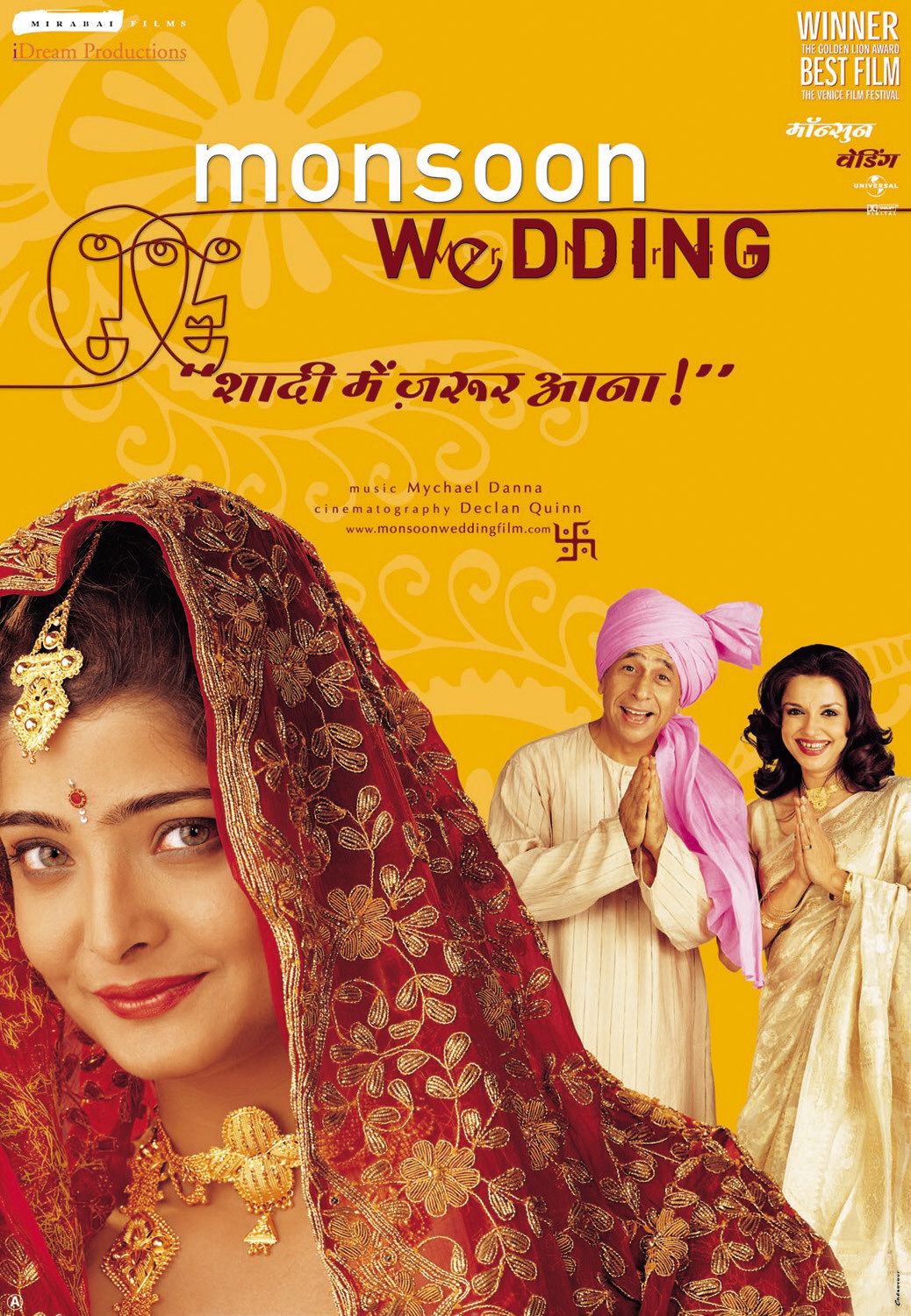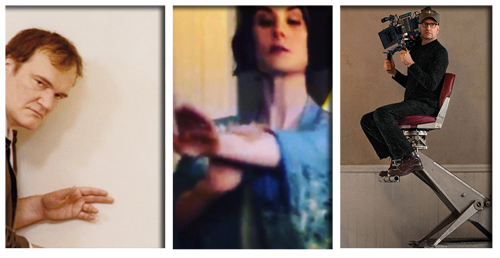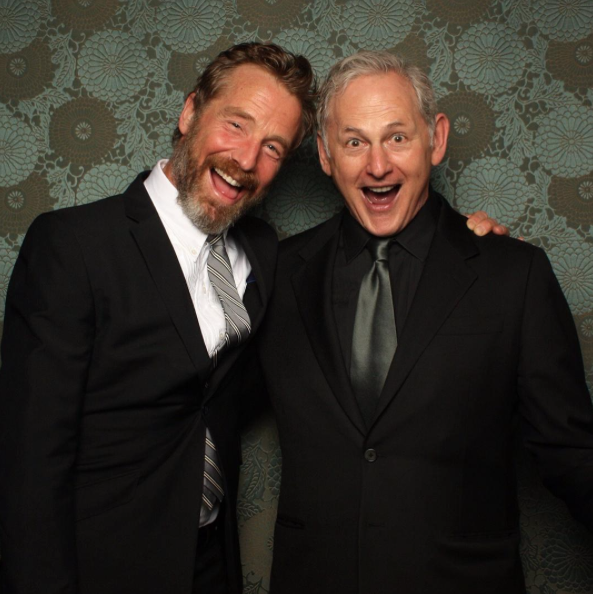Robert Wagner keeps invading our Smackdown celebrations. In our 1952 revisit he appeared briefly as a shell shocked soldier for Susan Hayward to comfort with her crooning in With a Song in My Heart. He was almost impossible to look at from the pretty. And here he is again, distracting another Smackdown with his smolder in the western Broken Lance.
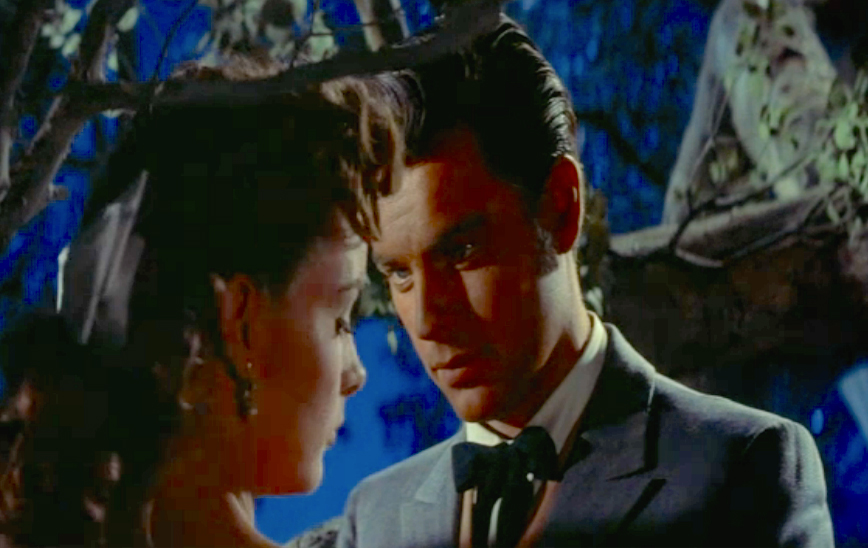
Perhaps we'd better go inside."
[Translation]: Jean Peters, you're about to tear your clothes off under the moonlight and devour me but I will chivalrously save your reputation... now that I've already won you with my lips.
The rising 24 year-old actor was rumored to be carrying on behind the scenes with the then 47 year-old Barbara Stanwyck (who happens to co-star in Executive Suite, another of this month's Smackdown movies) but his most enduring romance was yet to begin. How many times do you think a then 16 year-old Natalie Wood, just one year away from her key transition film from child star to teen icon (Rebel Without a Cause) demanded to watch Broken Lance? Do you think her friends & handlers were all "enough with the Broken Lance, Nat!" According to Natalie herself, by 1954 her love would have already been six years strong though the actors had yet to meet.
"I was 10 and he was 18 when I first saw him walking down a hall at 20th Century Fox," she recalls. "I turned to my mother and said, 'I'm going to marry him.' "
She did.
 Natalie married RJ (for the first time) in December 1957. She was just 19.
Natalie married RJ (for the first time) in December 1957. She was just 19.
In Broken Lance, the then 24 year old actor (of German and Norwegian descent) plays our protagonist, the "half breed" son of Native American princess "Señora Devereaux" (played by Mexican actress Katy Jurado) and an Irish cattle rancher (played by Spencer Tracy of Irish descent) who is at odds with his half-brothers. R.J. is heavily bronzed for the role. For all the typical Old Hollywood clumsiness with racial identity and casting -- something that hasn't changed much in the subsequent 61 years (note: Rooney Mara as "Tiger Lily" in the forthcoming Pan) -- Broken Lance actually really sells the racial identity angst with something like humane progressive verve. Jean Peters, playing RJ's love interest Barbara, jokes that her man is more upset about being half Irish than half Indian in a clumsy date scene which results in both of them doing those cheery Old Holllywood fake chuckles as we dissolve out. Elsewhere, though, there's rich drama. Tracy's three sons from an earlier marriage, who serve as the plot's antagonists aren't always comfortable with their bi-racial home but neither are they painted as explicitly racist. Their "evil," if you will, arrives from a more complex mix of agendas and grudges against their father and you can see that the eldest actually respects his stepmom and youngest brother, even as he speaks out against them. In the films most sympathetically acted moment of strife, Tracy squares off with the Governor (E.G. Marshall), over their children's unexpected romance (pictured up top). The governor's discomfort with his daughter falling for his closest friend's bi-racial son-- a young man he otherwise likes quite a lot and has seen grow up, mind you -- clearly scars both men, tearing their decades long friendship apart. Prejudices hurt everyone, not just the target of the prejudice.
All in all Broken Lance is an engaging western with more ambitions than gunfights for a change of pace. And this is why we should always love the Oscars, people. Let others reflexively gripe about it and miss out. Awards history directs us to movies we might otherwise never see from before our time. And Oscar history, for all its imperfections and blindspots, can illuminate pop culture throughlines, introduce you to rich now underappreciated talents, and provide wonderful anecdotal bits and bobs from mainstream history, cinematic and otherwise.
I love doing the Smackdowns and I hope you do, too. If you wanted to vote on this round, I need your votes by this evening at the absolute latest. The 1954 Supporting Actress Smackdown arrives Sunday morning at 10:00 AM.
 Saturday, September 17, 2016 at 9:40AM
Saturday, September 17, 2016 at 9:40AM 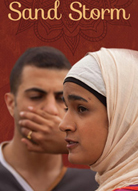 Nathaniel reporting from the last weekend at TIFF where brides-to-be are in the air. It's easy to see little mini-festivals blossom within the overall festival you're watching. Sometimes it happens quite by accident as with three films I caught recently (two of which might be fighting for Oscar foreign film nods). All feature female protagonists who pine for a man they thought they would marry before things went horribly wrong. We've already discussed François Ozon's Frantz. In that film the fiancee is already dead when the movie begins but in these next two films The Wedding Ring from Niger and Sand Storm from Israel, both of the young women begin the movie with a combination of dread and hope: will they be able to marry the man they loved who they met in a liberal university setting or does their conservative rural village community have other futures in mind? Both films are narrative debuts by female directors. In addition to their romantic dramas these two films speak to the clash of modernity and tradition, West and East, and especially to gender roles with young women chafing at the expectations placed on them to be subservient to whims of the patriarchy...
Nathaniel reporting from the last weekend at TIFF where brides-to-be are in the air. It's easy to see little mini-festivals blossom within the overall festival you're watching. Sometimes it happens quite by accident as with three films I caught recently (two of which might be fighting for Oscar foreign film nods). All feature female protagonists who pine for a man they thought they would marry before things went horribly wrong. We've already discussed François Ozon's Frantz. In that film the fiancee is already dead when the movie begins but in these next two films The Wedding Ring from Niger and Sand Storm from Israel, both of the young women begin the movie with a combination of dread and hope: will they be able to marry the man they loved who they met in a liberal university setting or does their conservative rural village community have other futures in mind? Both films are narrative debuts by female directors. In addition to their romantic dramas these two films speak to the clash of modernity and tradition, West and East, and especially to gender roles with young women chafing at the expectations placed on them to be subservient to whims of the patriarchy... Africa,
Africa,  Israel,
Israel,  Nollywood,
Nollywood,  Reviews,
Reviews,  Sand Storm,
Sand Storm,  TIFF,
TIFF,  foreign films,
foreign films,  gender politics,
gender politics,  politics,
politics,  religiosity,
religiosity,  weddings
weddings 



